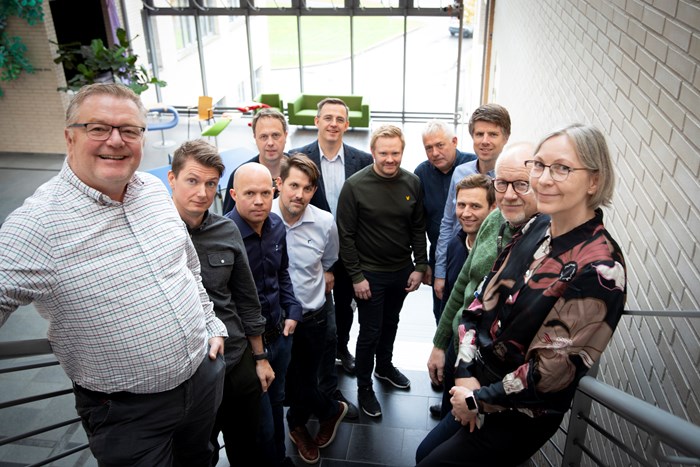NTNU Ålesund launches REFUEL project
The REFUEL Project, a four-year project lead by NTNU in collaboration with GCE Blue Maritime and eight Norwegian maritime companies, was launched at NTNU in Ålesund last week. The aim of the project is to provide low-carbon and zero-emission solutions for the coastal fleet.

Foto: NTNU Ålesund
NTNU Ålesund is leading the four-year REFUEL project in collaboration with GCE Blue Maritime and eight Norwegian maritime companies that cover the entire maritime value chain. The project's active partners include Corvus, Frøy ASA, HPS - Haf Power Solutions, Hofseth International, Inseanergy, Norwegian Coastal Administration, Nogva Motorfabrikk, and Norwegian Hydrogen.
The REFUEL Project aims to provide low-carbon and zero-emission solutions for the coastal fleet. Unfortunately, refueling stations for these fuels are unavailable, making it impossible to convert vessels from fossil fuels to low-carbon or zero-emission energy carriers. Therefore, it is necessary to establish a reliable and efficient refueling and recharging system to achieve this goal. currently unava
By making green energy accessible for fishing vessels, aquaculture vessels, passenger vessels, bulk carriers, and other cargo vessels the project will contribute to Norway`s emission reduction goals by 2030 and 2050
Ann Rigmor Nerheim, Associate Professor NTNU
Ann Rigmor Nerheim, associate professor at NTNU and project leader, is also excited to start: “In this project, a conceptual layout for a sustainable coastal green energy supply chain will be developed. This includes recommendations for the location, layout, and content of modularizable green energy stations. Implementing feasible multi-fuel systems on board coastal vessels for retrofitting will also be investigated. By making green energy accessible for fishing vessels, aquaculture vessels, passenger vessels, bulk carriers, and other cargo vessels, the project will contribute to Norway's emission reduction goals by 2030 and 2050”, Nerheim says.
Accelerating the green transition
The project aims to provide knowledge and technology related to alternative fuels to other industries and the public. This will accelerate the transition to renewable energy for society as a whole. The project will offer recommendations to government agencies and policymakers regarding deploying infrastructure for low-carbon and zero-emission fuels.
Although the project focuses on coastal ships in Norway, the project results will also apply to coastal infrastructure worldwide.
To determine a functional energy infrastructure and supply chain for the costal fleet it will be crucial to speed up the process.
Knut Tore Aurdal, Head of Projects, GCE Blue Maritime Cluster
Aurdal stated, “This project aims to focus on the practical implications of the green maritime transition. You will find The vessels most suited for new energy sources in our coastal fleet. Hence, determining this fleet's functional energy infrastructure and supply chain will be crucial to speed up the process.”
Together with the eight highly skilled companies joining the project, the GCE Blue Maritime Cluster represents another 150 renowned maritime companies and organizations. Over the past year, the GCE Blue Maritime Cluster has also developed a strong network through its dedicated efforts on this topic. "We are confident that our contributions can play a significant role in ensuring the success of this project, says Aurdal.